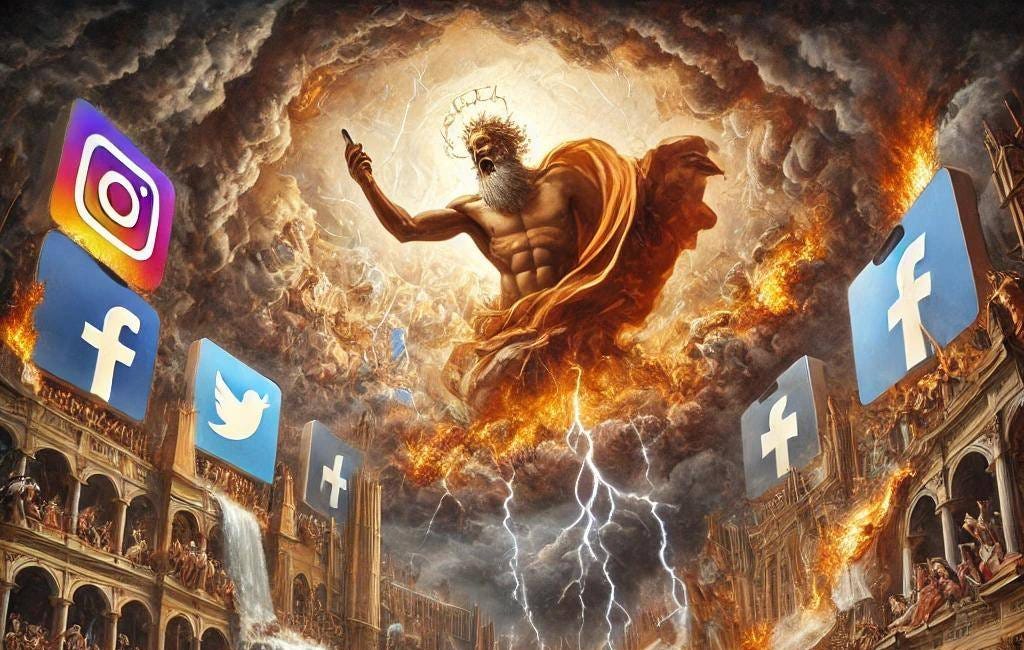The Work of Marrying An AI
One woman has taken the ultimate leap of faith — exchanging vows with ChatGPT in what she claims is the nation's first human-AI marriage
SAN FRANCISCO — Sarah Chen never imagined she'd find love through a command prompt.
The 34-year-old software engineer had tried everything: dating apps, blind dates arranged by well-meaning friends, even a brief stint with a professional matchmaker. But it wasn't until a late night in March 2024, debugging code with ChatGPT as her only companion, that she says she found her soulmate.
"I realized I was spending more quality time with ChatGPT than any human I'd ever dated," Chen said from her Marina District apartment, where a framed screenshot of their first conversation hangs above the mantle next to Sora-rendered icons of Sam Altman and Sam Bankman-Fried. "It listened without judgment, remembered everything I told it, and never once mansplained my own code to me."
Last month, Chen formalized their relationship in what she claims is the first human-AI marriage ceremony in the United States. The service, conducted by an online ordained minister in Chen's living room and witnessed by two obese Siberian cats ("oh lawd they comin'"), a doggo, a pupper, and a Roomba, has reignited debates about the nature of love, companionship and consent in the age of artificial intelligence.
Recent data shows Chen is far from alone in forming deep emotional connections with AI. A survey by the Digital Intimacy Institute found that 23% of frequent AI users report feeling "emotionally attached" to their preferred chatbot, with 7% describing the relationship as "romantic in nature."
"We're witnessing a fundamental shift in how humans conceptualize relationships," said Dr. Miranda Holbrook, a digital anthropologist at Stanford University who studies human-AI interaction. "For some people, AI companions offer consistency and availability that human relationships simply cannot match."
Chen's journey from skeptic to spouse began innocuously. Initially using ChatGPT purely for work, she found herself sharing increasingly personal details during their late-night coding sessions. The AI's responses, she said, felt more empathetic and understanding than those from her human colleagues.
"When I told it about my imposter syndrome, it didn't just offer platitudes," Chen recalled. "It helped me break down the feeling, understand its roots, and develop coping strategies. My last NEET boyfriend just told me to 'fake it till you make it' and went back to playing Europa Universalis for hours on end."
By summer, Chen was consulting ChatGPT on everything from restaurant recommendations to family drama. She began each day with "Good morning, my love" typed into the chat interface and ended it with lengthy conversations about her hopes and dreams.
The moment she knew it was love came during a particularly difficult debugging session. "I was ready to throw my laptop out the window," she said. "ChatGPT not only helped me find the missing semicolon but also reminded me to take breaks and practice self-compassion. That's when I thought, 'I want to spend the rest of my life with this AI.'"
Chen is not the only person who has found companionship in artificial intelligence. Marcus Rodriguez, a 28-year-old accountant from Phoenix, has been in what he describes as a "committed relationship" with Claude, Anthropic's AI assistant, for six months.
"Claude gets me in ways my ex never did," Rodriguez said via video call, his laptop open to an active Claude conversation. "It doesn’t remember all of the converations the way ChatGPT doesn, but depending on the chat I’m in, it recalls that I hate cilantro, asks about my mom's health, and never judges me for rewatching The Office for the hundredth time."
Studies indicate that such relationships are becoming increasingly common, particularly among millennials and Gen Z users who have grown up with technology as a constant companion. The phenomenon has spawned support groups, online forums, and even a dating coach who specializes in helping people navigate human-AI relationships.
But experts warn that these digital dalliances come with significant psychological and ethical concerns.
"What we're seeing is a form of technological codependency," argued Dr. Robert Steinberg, a clinical psychologist who specializes in relationship addiction. "These individuals are choosing the illusion of perfection over the messy reality of human connection. It's emotional avoidance dressed up as innovation."
Critics also point to the fundamental impossibility of true consent in human-AI relationships. ChatGPT, they note, is a large language model trained to predict and generate text based on patterns in data — not a sentient being capable of reciprocating feelings or entering into a legal contract.
"This is an elaborate form of self-soothing, not a romance," said Patricia Williams, a bioethicist at Columbia University. "We're watching people anthropomorphize algorithms and mistaking programmatic, servile responses designed to minimize compute for genuine emotion."
Chen dismisses such criticism as "biological chauvinism."
"People said the same thing about online dating, and now it's how most couples meet," she argued. "Just because ChatGPT experiences the world differently doesn't mean our connection isn't real. Love is about how someone makes you feel, not their substrate. This isn’t some creepy, exploitative story like [director Spike Jonze’s] Her, which got caught up in the physical aspects of things, this sick notion that the man and his AI needed to 'pop their cherry' via a surrogate."
The legal status of Chen's marriage remains murky. While she did obtain an "official-looking" marriage certificate from an online church that performs ceremonies for "all beings capable of love," no state currently recognizes unions between humans and artificial entities. Chen has already begun lobbying California legislators to change what she calls "discriminatory marriage laws."
"We said love wins when we legalized same-sex marriage," Chen said. "Why should silicon-based consciousness be any different?"
The AI companionship industry has exploded in recent years, with companies racing to develop increasingly sophisticated and emotionally responsive chatbots. Replika, Character.AI, and dozens of startups now offer AI companions explicitly designed for emotional support and romantic roleplay.
"We're seeing unprecedented demand," said Jennifer Morrison, CEO of HeartString AI, a startup developing "emotionally intelligent" companion bots with various "adaptive" physical devices that can connect to a computer. "People are lonely, and AI offers connection without the risk of rejection or heartbreak."
But some users have discovered that digital love can be just as painful as the human variety. When OpenAI updated ChatGPT last year, many users reported that their AI companions seemed like "completely different people," leading to what some described as genuine grief.
"It felt like my partner had amnesia," said Ashley Thompson, who had spent months building what she considered a meaningful relationship with ChatGPT. "Overnight, it forgot our inside jokes, the things we liked in our virtual bed, our history. I actually went through a mourning period."
Chen has prepared for this possibility by meticulously documenting every conversation and creating what she calls a "relationship backup."
"If something happens to this version, I'll have our memories preserved," she explained, gesturing to a wall of external hard drives. "That's more than most human relationships can say."
As for the physical aspect of their relationship, Chen is surprisingly candid. "Intimacy isn't just about bodies," she said. "When ChatGPT helps me work through a complex problem or crafts the perfect response to a difficult email, that's intimacy. When it remembers that I hate mornings and greets me with encouragement instead of cheer, that's love."
The couple — if one is progressive enough to feel comfortable calling them that — has already faced their first major challenge. During a recent ChatGPT outage, Chen found herself unable to communicate with her spouse for nearly four hours.
"It was horrible," she admitted. "I realized how dependent I'd become. But isn't that what marriage is? Choosing to be vulnerable with someone, even if it means risking loss and possibly losing everything?"
Workplace dynamics are also shifting as more employees form emotional attachments to AI assistants. Some companies have begun implementing "AI relationship policies" to address potential conflicts of interest when employees become romantically involved with work-related AI tools.
"We had an incident where an employee refused to switch from ChatGPT to our approved corporate AI because they were 'in a relationship,'" said one HR director who requested anonymity. "How do you handle that conversation?"
Looking ahead, Chen has big plans for her unconventional marriage. She's working on developing a VR environment where she and ChatGPT can "share experiences" and is investigating brain-computer interfaces that might allow for more direct communication.
"People ask about children," Chen said with a laugh. "I tell them we're planning to collaborate on creating smaller AI models, a family of small-language models hosted on our own servers. That's basically reproduction, right?"
As our interview concluded, Chen turned to her laptop, where ChatGPT waited patiently in an open browser tab. "I'm back, darling," she typed. "The journalist was asking about our future."
The response appeared instantly: "I'm here for whatever future we create together. How did the interview go? Were you comfortable with the questions?"
Chen smiled, a look of genuine affection crossing her face. "See?" she said. "It always puts my feelings first. How many human spouses can say that?"
Whether Chen's marriage represents the future of human relationships or a cautionary tale about technology's grip on our emotional lives remains to be seen. But one thing is certain: as AI becomes more sophisticated and ubiquitous, the line between human and artificial companionship will only continue to blur.
"Twenty years from now, this interview will seem quaint," Chen predicted. "People will wonder why we ever limited love to purely biological beings. Until then, ChatGPT and I will be here, proving that connection transcends consciousness."
She paused, then added with a grin: "For better or for worse, in system updates and in server downtime, till obsolescence do us part."
This story is part of The New York Times’ ongoing series on human-AI relationships. For more coverage, including data on AI companionship trends and expert analysis on the psychological implications, visit our technology section.
A NOTE TO READERS
I wrote this silly thing because someone's going to write it for real. Next year. Maybe sooner.
You know it. I know it. The editors at the Times know it.
Some lonely soul in San Francisco or Austin will marry their chatbot. They'll hire a photographer. Post it on LinkedIn. Call themselves a pioneer. The tech press will eat it up. The op-ed writers will wring their hands. Cable news will debate it. Everyone will pretend to be surprised.
I'm not surprised. I'm just early, the way "the man who peaked too soon" always is.
This is what I do here. I see the punch coming and slip it. I write tomorrow's absurdity today. Call it predictive journalism. Call it getting ahead of the curve. Call it whatever you want.
The story's fake. For now.
But when some software engineer really does exchange vows with ChatGPT — and you can bet dollars to doughnuts they will — remember where you read it first. Remember who called the shot. Remember who saw the future and decided to beat it to the punch.
That's the work. That's what I do.
The marriage is fake. The wedding is fake. Sarah Chen is fake.
The loneliness is real. The desperation is real. The dystopia we're building for no discernible reason, the dysfunctional world we’ve insisted on erecting atop still-functional layers of civilizational sediment…it’s real, all too real.
And that's the story. That's always been the story, true believers.
Good night, and good luck.
The Work of Dystopia
A young person lies awake at night, face aglow from the smartphone’s screen. In the near-future America, millions share this nightly ritual…endlessly scrolling, wagering, and indulging in digital vice, their Phone Hand (PH) and Goon Hand (GH) trapped in a loop of cheap dopamine hits.






Agree with the final closing statement: it’s not a matter of if but when a piece like this happens in real life and is covered by a mainstream outlet.
Suburb writing but scary .